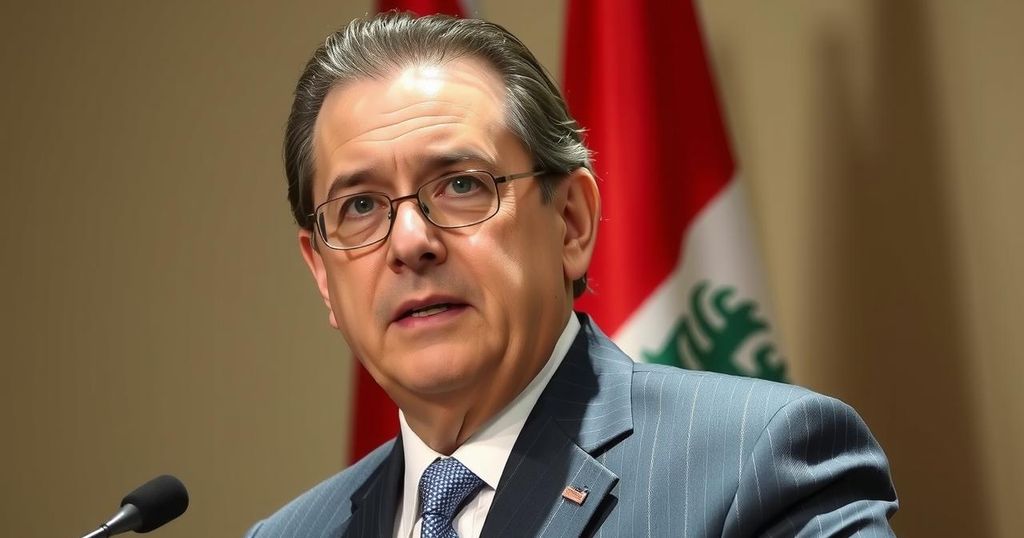General Joseph Aoun’s election as president of Lebanon is a significant setback for Hezbollah and Iran, following the withdrawal of their preferred candidate, Suleiman Frangieh. With support from international allies, Aoun faces substantial challenges ahead, including forming a new government and stabilizing regional relations. His presidency symbolizes a potential for Lebanon’s reconstruction and transformation, despite the pressures from established political factions.
Lebanon is witnessing a transformative political moment with the election of General Joseph Aoun as its new president, undermining Hezbollah’s influence. Initially, Hezbollah aimed to elevate Suleiman Frangieh but faced disappointment when he withdrew in favor of Aoun, who garners support from the U.S., France, and Saudi Arabia. This setback not only impacts Hezbollah but also Iran and its allied Shi’ite Amal movement. Following two years of political stalemate, Israel’s military advancements have catalyzed Aoun’s ascension, symbolizing a shift in Lebanon’s political landscape.
The recent developments are notable as Aoun prepares for diplomatic engagements, including anticipated meetings with Gulf envoys and a visit to Saudi Arabia, where Crown Prince Mohammed bin Salman has extended congratulations. Aoun is tasked with addressing numerous priorities, chiefly establishing a new government and maintaining stability regarding the ongoing ceasefire in southern Lebanon, while also ensuring Israel’s compliance with withdrawal agreements. He is under pressure to respond effectively to both national and international expectations, particularly concerning Hezbollah’s military capabilities and illegal arms smuggling.
While the Lebanese political scene has shown substantial resistance to Aounestablishing a government in which Hezbollah and the Amal movement will hold key roles, there is an underlying hope among the populace. Aoun’s vision emphasizes economic reconstruction and resetting Lebanon’s international partnerships. Nonetheless, his presidency will confront formidable challenges against entrenched political forces. As the nation faces this critical juncture, the effectiveness of Aoun’s leadership may very well determine Lebanon’s trajectory toward stability and reform, versus relegation to continued strife and instability.
The political landscape in Lebanon has been tumultuous, largely influenced by Hezbollah and Iranian interests. For over two years, the nation endured a political vacuum, exacerbated by conflicts and shifts in power among various factions. Hezbollah’s support for its preferred presidential candidate, Suleiman Frangieh, displayed its attempt to solidify control over Lebanon’s political apparatus. However, the broader support for General Joseph Aoun signals a departure from Hezbollah’s strategic ambitions, illustrating a shift prompted by both internal desires for stability and external pressures from international powers. Aoun’s presidency now offers a possibility to rebalance these dynamics and pursue various reforms essential for Lebanon’s recovery and legitimacy on the global stage.
In conclusion, General Joseph Aoun’s election represents a significant challenge to Hezbollah’s dominance in Lebanon, highlighting the interplay between domestic political maneuvering and international influence. His administration faces pressing obligations to legislate a new government, maintain the ceasefire, and repair the economy. While hope among the Lebanese citizenry remains, Aoun’s ability to navigate entrenched opposition and implement necessary reforms will be crucial in determining if this moment marks a new beginning or further complicates Lebanon’s complex political narrative.
Original Source: www.thejc.com






